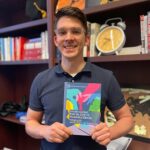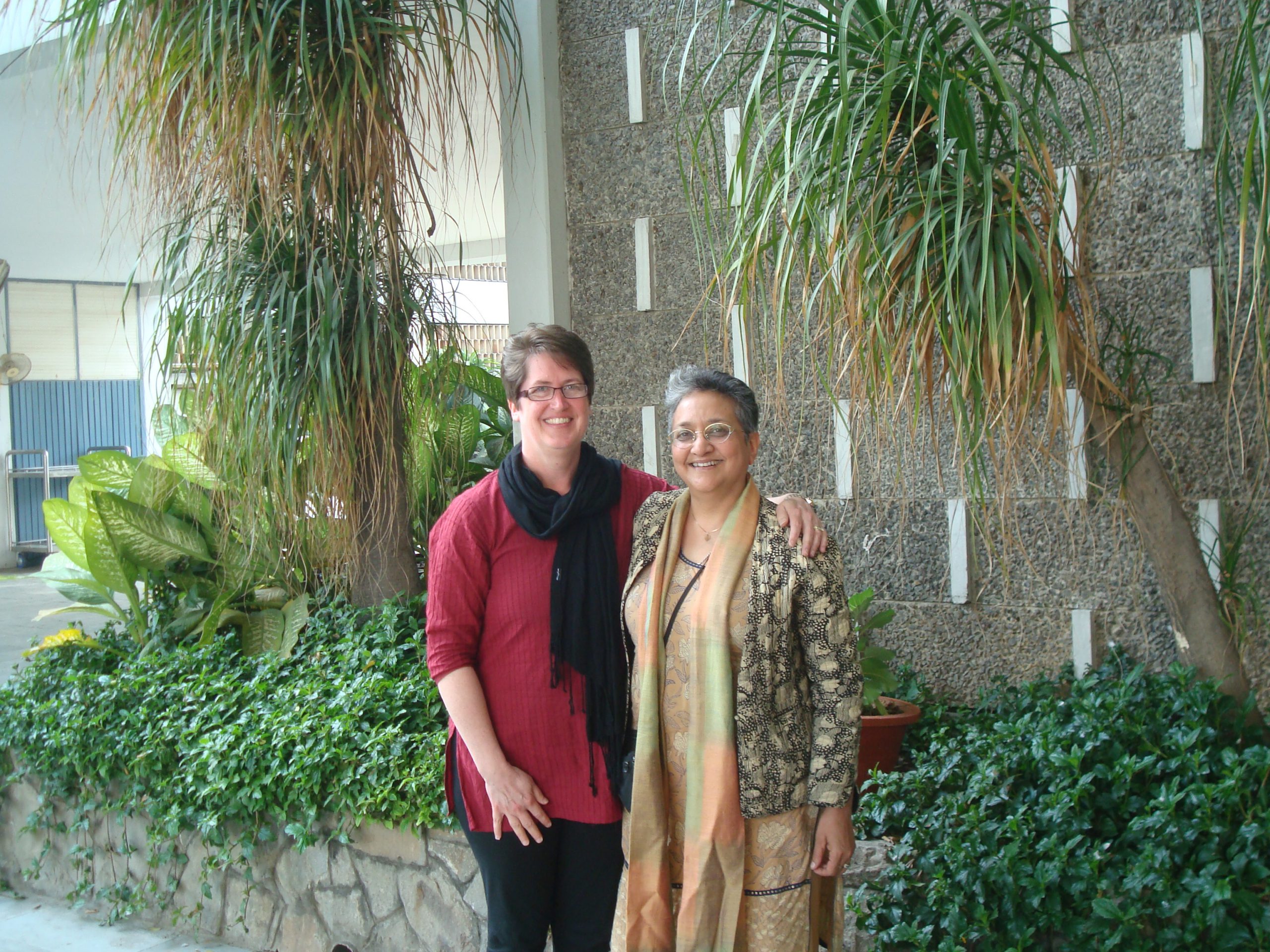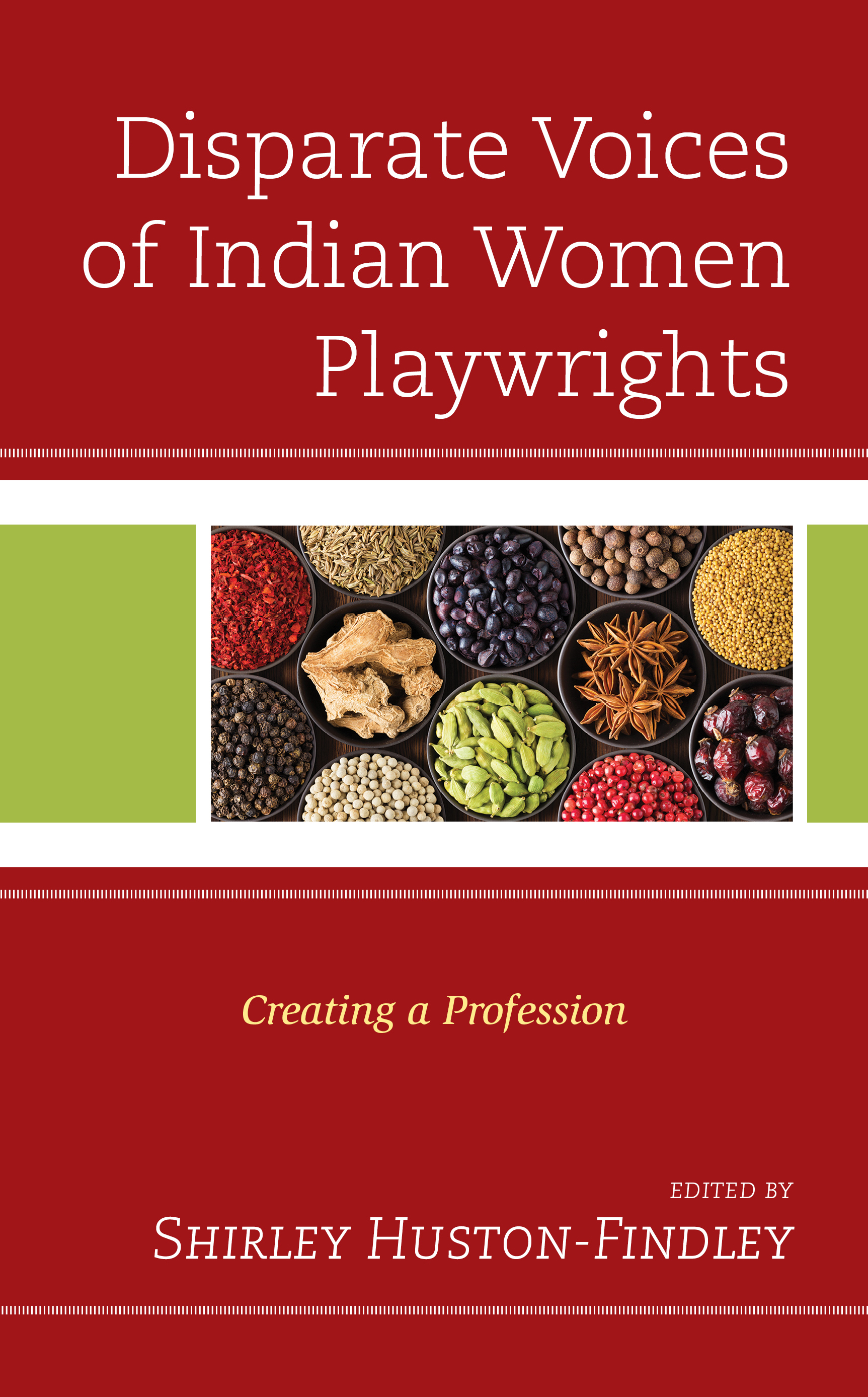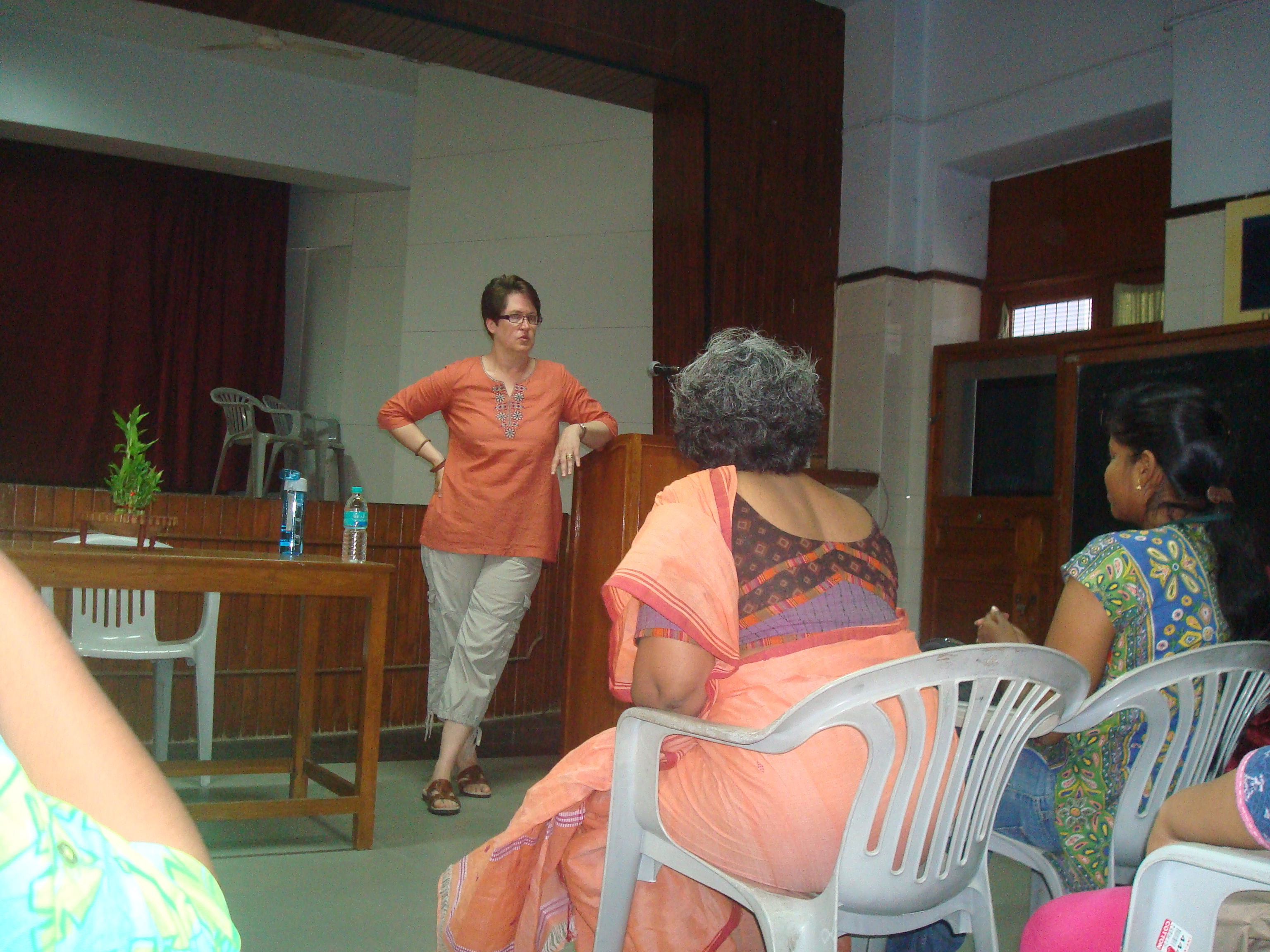
Huston-Findley’s Disparate Voices explores unique experiences of women playwrights in India

Shirley Huston-Findley, professor of theatre, takes readers on a tour of the unique circumstances surrounding women playwrights in India in her new book, Disparate Voices of Indian Women Playwrights: Creating a Profession, published in November by Lexington Books.
India’s contemporary theatre scene is fairly western in nature—greatly influenced by European colonization, according to Huston-Findley. And while playwrights like William Shakespeare, Harold Pinter, and Caryl Churchill are dominate, as are various American icons like Arthur Miller and Tennessee Williams, there are still many classical traditions (e.g. Kathakali), specifically in the southern states, that are incredibly vibrant.
 Drawn from her leave in India, Disparate Voices is a collection of plays and extensive interviews with the women who created them. The book introduces readers to the words and works of contemporary Indian women as they discuss the state of theatre throughout much of the country, as well as share their own creative writing as a reflection of their life experiences.
Drawn from her leave in India, Disparate Voices is a collection of plays and extensive interviews with the women who created them. The book introduces readers to the words and works of contemporary Indian women as they discuss the state of theatre throughout much of the country, as well as share their own creative writing as a reflection of their life experiences.
Among the key themes Huston-Findley uncovers is one of familial identity: “How can they accomplish what is expected of them as a mother and/or wife, for instance, and be supported enough to write, attend rehearsals, etc.?” she explains. “Some choose to remain single as a result, while others choose to marry a partner willing to make their writing dreams a reality. And sometimes they simply lock the door and ignore everything that might stand in their way of success.”
While very few of the playwrights with whom she met view themselves as “activists” when asked, they all write about social, political, and cultural issues, using the stage as a platform. Huston-Findley says the works she chose demonstrate a very broad range of topics and styles, influenced by the place, age, and educational background of each of the women.
“For example, Jayshree Vankatesan in Chennai works in the finance industry, so her 10-minute comedy, ‘The Quest,’ focuses on a Jewish Brahmin from Tamil Nadu who is a Wall Street banker in search of the perfect partner. Irawati Karnik in Mumbai, on the other hand, contributes ‘Satellite City,’ which uses a soap opera style of storytelling and often mindless themes and stock characters to explore issues of communication in an age of the 24-hour news cycle. And Aunshka Ravishankar, in the Delhi area, who used to work in IT and now writes children’s stories primarily, gives us ‘The Cockroach Collector,’ a psychological thriller that weaves together the real with the metatheatrical in extraordinary ways,” according to Huston-Findley.
The introduction to the book explores various cultural challenges faced by the women—everything from lack of funding, censorship, education, and how being a woman matters in the industry. The women playwrights describe the “lack of training in playwriting even at the government funded Delhi School of Drama,” says Huston-Findley. “In addition, there exists no industry regulation for things one might take for granted, like copyright laws, so writers often don’t get credited or paid for their work being produced.”
And while the various hurdles regarding playwriting in India in general were specific to the country all are fairly identifiable in other regions of the world, including the U.S., according to Huston-Findley.
 Her research was funded both by The College of Wooster’s Venture Award from the Henry Luce III Fund for Distinguished Scholarship and the U.S.-India Educational Foundation Fulbright-Nehru Scholars Program. The generous funding allowed her to travel throughout the country interviewing women in Delhi, Chennai, Bangalore, Calcutta, Pondicherry, Chandigarh, and Mumbai over a four-month period. The book includes the interviews and works (with an introduction to each) of 7 of the 29 women interviewed, as well as an introduction that discusses the profession.
Her research was funded both by The College of Wooster’s Venture Award from the Henry Luce III Fund for Distinguished Scholarship and the U.S.-India Educational Foundation Fulbright-Nehru Scholars Program. The generous funding allowed her to travel throughout the country interviewing women in Delhi, Chennai, Bangalore, Calcutta, Pondicherry, Chandigarh, and Mumbai over a four-month period. The book includes the interviews and works (with an introduction to each) of 7 of the 29 women interviewed, as well as an introduction that discusses the profession.
Huston-Findley’s interview of another Indian woman that emerged from the same research also came out in November in the journal Theatre Topics.
“Having been to India twice before my leave I was not overly surprised by much, but I was amazed by the warmth and generosity of each of the 29 women I interviewed,” adds Huston-Findley. “None of them knew me in advance, but when emailed they were eager to share their stories and their works and sometimes even their homes and a meal.”
Posted in News on December 3, 2019.
Related Posts
Related Areas of Study
Theatre & Dance
Scholarship and artistry in theatre and dance for those who are passionate about performance in all its forms.
Major Minor

